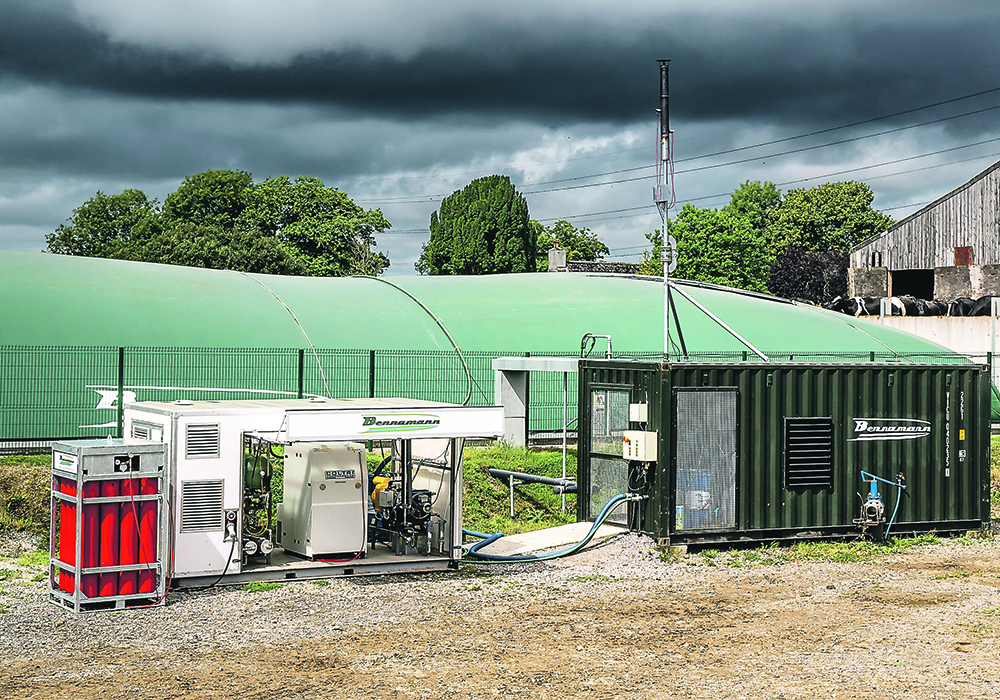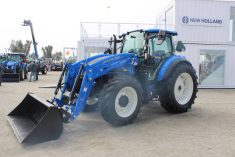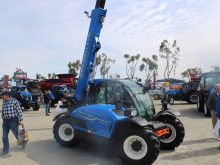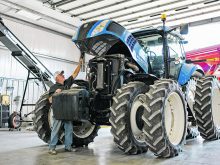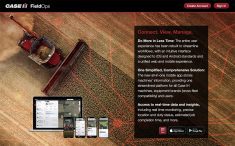CNH acquisition captures fuel for on-farm generators and the New Holland T7 Methane Powered tractor
CNH added to its alternative power portfolio by taking a majority stake in Bennamann, a company based in the United Kingdom that captures and stores methane.
Oscar Baroncelli, the head of global tractor and telehandler product management at CNH, said he’s a believer in the potential of methane tractors.
“We would also like to support our customer through an infrastructure piece, because there’s always a matter of the chicken and egg,” Baroncelli said.
“Because of the importance of the infrastructure, we decided to have this kind of majority stake in Bennamann.”
Read Also
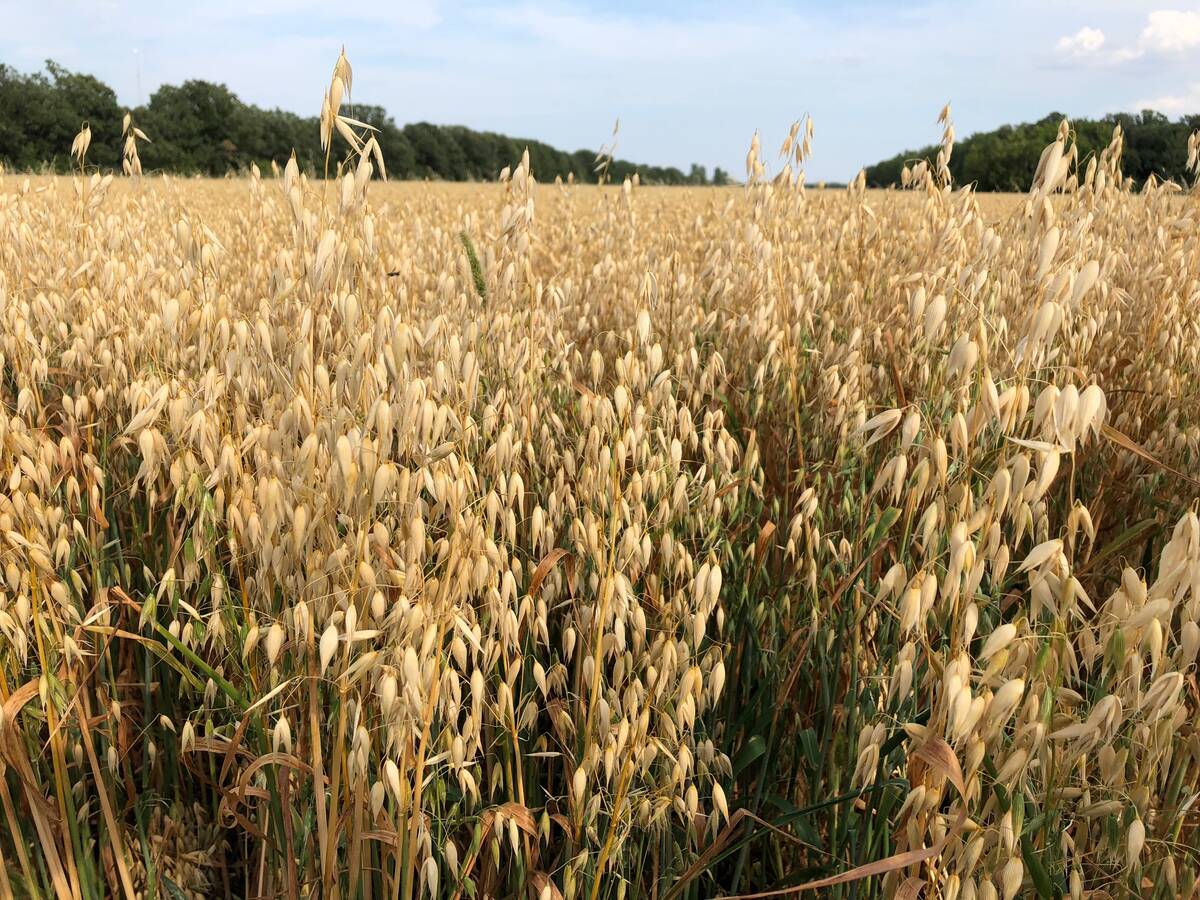
Controversy fails to prevent PGR use in oats
Some Manitoba oat growers are still using chlormequat chloride — the active ingredient in Manipulator —and sometimes to measurable success.
Bennamann builds technology that captures methane from slurry storage facilities used on dairy farms and then converts it into liquefied fugitive methane.
“Once you cover a lagoon with a layer, you’re going to capture the biogas that is automatically generated by the manure fermentation,” Baroncelli said.
“The first layer captures the biogas, and the second layer that is going to be the biogas storage.”
The LFM is then purified and converted into liquefied methane using a processing unit, and stored in Bennamann’s non-venting cryogenic storage tanks that keep the methane as a liquid at -162 C.
Baroncelli said this technology enables the liquefied natural gas to be transported and sold off farm, or to be used as a biofuel on the farm to help reduce input costs.
“So once you have the biomethane with a big capability of storage, then you can do what you want. You can refill your tractor, you can refill your vehicle, you can produce electricity, you can sell the gas, you can sell the electricity, and you can heat the farm. You can do what you want,” Baroncelli said.
Bennamann is developing a system for small diaries that have about 150 cows, and a larger system for operations with about 900 cows.
“So far, we have three farms running in operation in Cornwall (England), and we have two farms that are going to be completed this year. Then we’re going to start to roll out. Our pipeline, or orders, is full right now. The limiting factor is the Bannerman capability of commissioning,” Baroncelli said.
He said Bennamann is certified for Europe and the company is working toward getting certified in North America, where it hopes to expand once the technology is proven.
“We’re going to have two types of advantages. The first is to create C02 credits from reduced emission farms. The second is to give them (farms) additional revenue streams, or cutting costs,” Baroncelli said.
“It’s a relatively low investment, because having the upgrading system as a service basically covers your CapEx and your investment entirely, and in some European markets it’s important to avoid releasing the biogas into the environment.”
Bennamann’s research suggests that a 120-cow farm operating the methane capture technology can reduce the CO2 equivalent of 100 western European households, about about 780 tons annually.
Baroncelli said this system will work well with the New Holland T7 Methane Power LNG tractor, because the products working together can offer a carbon negative solution.


